You are here
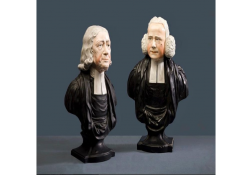 December 17 2021
WESLEY VS WHITFIELD
December 17 2021
WESLEY VS WHITFIELD
It is a curious fact of our history that the Church of England started on the firm foundation of a moderate Calvinism (Calvin before Calvinism, the clear message of the Anglican formularies), but after Edward VI, Elizabeth I, and James I the colors of the church changed to Arminianism (sometimes called Pelagian: see Article 9). By 1630s-40s the church became significantly anti-Calvinist and has remained that-leaning ever since, and I wonder why and how it happened.
Read more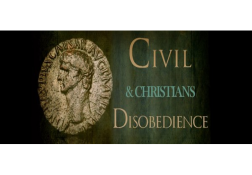 December 17 2021
The Limits of Civil Obedience: the Meaning of Romans 13
December 17 2021
The Limits of Civil Obedience: the Meaning of Romans 13
Romans 13 has long been a controversial and greatly misunderstood passage. It is also a passage that has been often referred to in the last few years in light of mandates, lockdowns and coercion -- often invoked to require an almost unquestioning subservience and submission to the state.
Read more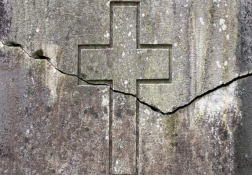 December 07 2021
The Evangelical Fracture
December 07 2021
The Evangelical Fracture
Politics Finds a Home -- at Church
Of course, things inside the evangelical camp are divisive. According to one study, 29% of pastors considered quitting in the last year, and Wehner suggests why: "the aggressive, disruptive, and unforgiving mindset that characterizes so much of our politics has found a home in many American churches."
Politics, in and of itself, makes for a lousy worldview.
Read more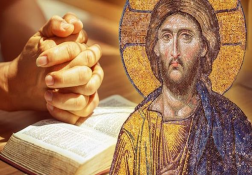 December 02 2021
On the Second Coming
December 02 2021
On the Second Coming
Years ago, we were driving in the family station wagon along the Merritt Parkway in
southern Connecticut. First constructed in 1938, the limited-access road crosses Fairfield
County and has many scenic views. As clergy families sometimes do, we were having a
lively discussion about the Second Coming of Jesus! As we came over one of the parkway's
many inclines, the setting sun reflected across the clouds, producing a dramatic golden
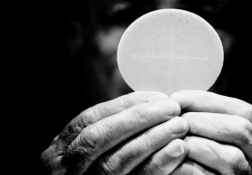 December 01 2021
TRANSUBSTANTIATION VS CRANMER & REAL PRESENCE
December 01 2021
TRANSUBSTANTIATION VS CRANMER & REAL PRESENCE
Anglicans believe that grace is given in the sacrament of Holy Communion ("effectual signs of grace"), and that the real presence of Christ is spiritually experienced in the believer's heart when they receive the grace by faith with thanksgiving. Jesus is spiritually present everywhere ("I am with you always"), but, after his Ascension, he is bodily in heaven where he sits at the right hand of God the Father until the day he will return ("I will return in the same way").
Read more November 18 2021
MONUMENTAL PAPAL BULL
November 18 2021
MONUMENTAL PAPAL BULL
The 16th century Protestant reformers strongly upheld that "In this church there is a very large mixture of hypocrites, who have nothing of Christ but the name and outward appearance..." (Calvin, Institutes 4.1.7).
Read more November 15 2021
ANGLICAN EVANGELICALISM: RECLAIMING OUR ALLIES (Part One)
November 15 2021
ANGLICAN EVANGELICALISM: RECLAIMING OUR ALLIES (Part One)
Somehow these advocates of the pure gospel of God are overlooked and other camps within the borders of our Communion associate with them, regarding them as normally or nearly their own by a common conviction, unaware of their deep attachment to tendencies of theological thought that do not chime with the major emphases that characterize the particular movement with which these mistaken supporters happen to identify.
Read more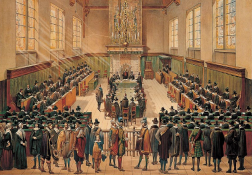 October 21 2021
AN EXPERIENTIAL ANGLE ON DIVINE PREDESTINATION
October 21 2021
AN EXPERIENTIAL ANGLE ON DIVINE PREDESTINATION
"It behoves all believers to be assured of their election, that they may learn to behold it in Christ as in a mirror. Tracts 111:155 - Jean Calvin
Read more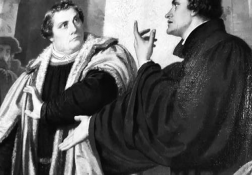 October 01 2021
Real Presence, Marburg, and Cranmer
October 01 2021
Real Presence, Marburg, and Cranmer
Thomas Cranmer came to the evangelical faith a bit later in the Reformation and he obviously did not attend the Colloquy, but he (and John Calvin) settled on a middle way between Luther and Zwingli.
Read more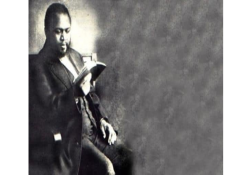 September 29 2021
THREE STREAMS
September 29 2021
THREE STREAMS
William J. Seymore arrived in Los Angeles in 1906 to found what would be called modern-day Pentecostalism. To be sure, there were other "Pentecostal" outbreaks prior to Seymore, but they would never be normative in the life of the church as three-streams suggests. Pastor William first taught in his living room and them in a rented hall on Azusa Street that the baptism of the Holy Spirit is a necessary post-conversion experience that is evidenced by speaking in tongues and prophesy.
Read more


